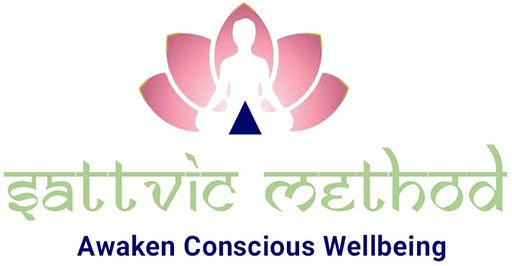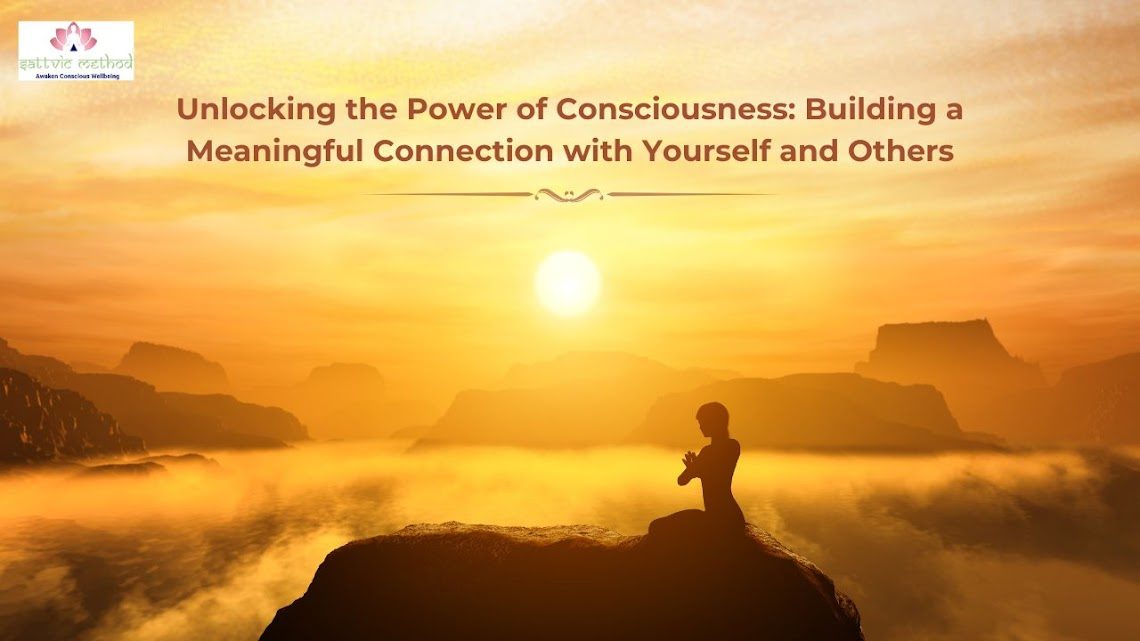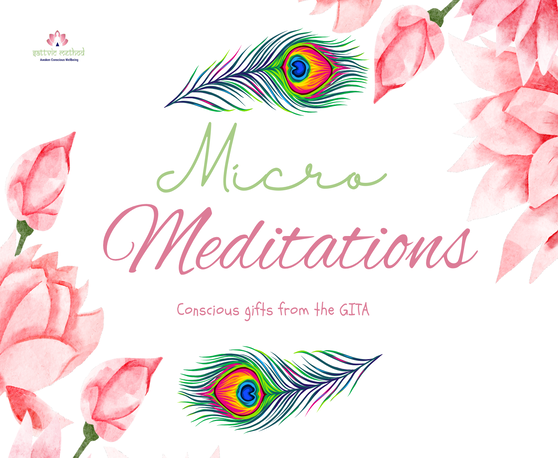Unlocking the Power of Consciousness: Building a Meaningful Connection with Yourself and Others
Discover the transformative power of consciousness and forge a deep and meaningful connection with yourself and others. In today’s fast-paced world, it’s easy to get caught up in the daily grind and lose touch with our true selves and those around us. However, by unlocking the power of consciousness, we can cultivate a greater sense of self-awareness, empathy, and compassion, leading to more fulfilling relationships and a richer, more authentic life.
In this article, we will explore the concept of consciousness and delve into practical strategies for building a meaningful connection with yourself and others. Drawing on ancient wisdom and modern neuroscience, we will uncover the keys to unlocking your innate potential and tapping into the boundless wellspring of human connection. From mindfulness practices to communication techniques, this article will equip you with the tools you need to navigate the complexities of relationships and cultivate a deeper sense of purpose and fulfillment.
Whether you’re seeking to deepen your connection with loved ones, enhance your professional relationships, or simply reconnect with yourself on a deeper level, this article will empower you to unlock the power of consciousness and forge meaningful connections that can enrich every aspect of your life.
Understanding consciousness: What is it and why is it important?
Consciousness is a multifaceted concept that has intrigued philosophers, scientists, and spiritual seekers for centuries. At its core, consciousness refers to the state of being aware of and able to think about one’s own existence, thoughts, and surroundings. It encompasses a range of experiences, from the most basic awareness of sensory information to the complex reflections on one’s identity and purpose. Understanding consciousness is crucial because it forms the foundation of our experiences and interactions, influencing how we perceive the world and ourselves.
In the context of personal development, consciousness plays a vital role in determining the depth of our connections with ourselves and others. When we are conscious, we are not merely reacting to life’s stimuli; instead, we are actively engaging with our thoughts and emotions. This awareness allows us to make deliberate choices that align with our values and aspirations. By enhancing our consciousness, we unlock the ability to reflect on our experiences, learn from them, and develop a clearer understanding of our motivations and behaviors.
Furthermore, awareness of consciousness can lead to a profound transformation in how we interact with others. It enables us to approach relationships with intention and authenticity, fostering deeper connections. As we become more aware of our own inner workings, we can better empathize with the experiences of those around us. This mutual understanding is essential for building rapport and trust, creating a more enriching social landscape. Ultimately, understanding consciousness is not just an intellectual pursuit; it is a pathway to living a more meaningful and connected life.
The power of self-awareness: Exploring the benefits of being conscious
Self-awareness is a cornerstone of consciousness and involves recognizing and understanding one’s thoughts, emotions, and behaviors. This heightened awareness brings numerous benefits that can significantly impact our lives. One of the primary advantages of self-awareness is improved emotional regulation. When we are aware of our emotional states, we are better equipped to manage our reactions and respond thoughtfully rather than impulsively. This ability can enhance our relationships by reducing conflict and fostering more constructive communication.
Additionally, self-awareness encourages personal growth and development. By understanding our strengths and weaknesses, we can set realistic goals for improvement and track our progress over time. This journey of self-discovery cultivates resilience and adaptability, allowing us to navigate life’s challenges more effectively. As we become more conscious of our patterns and habits, we can break free from limiting beliefs and behaviors, opening the door to new possibilities and experiences.
Moreover, self-awareness significantly enhances our interpersonal relationships. When we understand ourselves, we are more capable of understanding others. This deeper awareness fosters empathy, allowing us to connect with the feelings and perspectives of those around us. As we cultivate this empathetic connection, our relationships become more meaningful and fulfilling. Ultimately, the power of self-awareness serves as a catalyst for personal transformation and enriched connections with others, making it an essential component of a conscious life.
Cultivating mindfulness: Techniques to develop a deeper connection with yourself
Mindfulness is a powerful practice that helps cultivate a deeper connection with oneself. It involves paying deliberate attention to the present moment, fostering a non-judgmental awareness of thoughts, feelings, and sensations. One effective technique for developing mindfulness is meditation. By setting aside time each day to meditate, individuals can train their minds to focus and remain present. This practice not only calms the mind but also enhances self-awareness, allowing for greater insight into one’s thoughts and emotions.
Another valuable technique is mindful breathing. This practice involves focusing on the breath, observing each inhalation and exhalation without trying to change it. Mindful breathing can be practiced anywhere, making it a versatile tool for grounding oneself in the present moment. As you concentrate on your breath, you may notice thoughts arising; rather than engaging with these thoughts, simply acknowledge them and return your focus to your breathing. Over time, this practice can foster a profound sense of inner peace and clarity.
Additionally, engaging in mindful activities, such as walking, eating, or even washing dishes, can deepen your connection with yourself. By bringing awareness to these everyday tasks, you can transform mundane moments into opportunities for reflection and presence. For instance, while eating, pay attention to the flavors, textures, and aromas of your food. This practice not only enhances the experience of eating but also reinforces a sense of gratitude for the nourishment you receive. Cultivating mindfulness in daily life encourages a richer relationship with oneself, paving the way for more meaningful connections with others.
Building meaningful relationships: How consciousness enhances connections with others
The depth of our relationships is often a reflection of our level of consciousness. When we approach relationships with awareness, we foster an environment of trust and intimacy. Consciousness allows us to be fully present with others, listening actively and engaging in meaningful conversations. This presence conveys respect and appreciation, laying the groundwork for deeper connections. By being attuned to our own thoughts and feelings, we can better understand and respond to the emotional needs of our loved ones.
Moreover, conscious relationships require vulnerability. When we are aware of our own emotions and experiences, we can share our authentic selves with others. This openness invites others to do the same, creating a reciprocal dynamic where both parties feel safe to express themselves honestly. Vulnerability strengthens bonds, as it cultivates empathy and understanding. When we share our struggles and triumphs, we create a tapestry of shared experiences that enrich our relationships.
Additionally, engaging in conscious communication is essential for building meaningful connections. This involves not only expressing our thoughts and feelings clearly but also being receptive to the perspectives of others. By practicing active listening and empathy, we create a dialogue that fosters mutual respect and understanding. As we enhance our communication skills, we can navigate conflicts more effectively, turning potential misunderstandings into opportunities for growth. Ultimately, the power of consciousness in relationships lies in its ability to cultivate authenticity, empathy, and connection, enhancing the quality of our interactions with others.
The role of empathy in conscious relationships
Empathy is a vital component of conscious relationships, serving as the bridge that connects us to others on a deeper level. It involves the ability to understand and share the feelings of another person, allowing us to step into their shoes and see the world through their eyes. In conscious relationships, empathy is not just a passive feeling but an active practice that fosters connection and intimacy. By being empathetic, we validate the experiences and emotions of those around us, creating a safe space for open communication.
One of the key benefits of empathy in relationships is its capacity to dissolve barriers and foster understanding. When we approach others with empathy, we can navigate differences and conflicts with compassion rather than judgment. This approach encourages dialogue, fostering a sense of belonging and acceptance. In contrast, a lack of empathy can lead to misunderstandings, resentment, and disconnection. By consciously cultivating empathy, we can transform our interactions and build stronger, more resilient relationships.
Furthermore, empathy contributes to our own emotional well-being. When we engage with others on a deeper level, we not only support them but also enrich our own experiences. Understanding the struggles and joys of others can evoke a sense of shared humanity, reminding us that we are not alone in our feelings. This shared experience fosters a sense of community, enhancing our overall sense of connection and fulfillment. In conscious relationships, empathy is a powerful tool that deepens our understanding of ourselves and others, leading to profound and meaningful connections.
The impact of conscious communication in personal and professional interactions
Conscious communication is a fundamental aspect of building and maintaining meaningful relationships, both personal and professional. It involves expressing oneself clearly while being fully present and attentive to the other person’s perspective. This type of communication fosters an environment of respect and openness, allowing for more effective exchanges of ideas and emotions. In personal relationships, conscious communication helps to bridge gaps in understanding, reducing potential conflicts and misunderstandings.
One key element of conscious communication is active listening. This practice involves giving full attention to the speaker, acknowledging their feelings, and responding thoughtfully. By actively engaging in conversations, we demonstrate that we value the other person’s thoughts and experiences. This not only strengthens the bond between individuals but also encourages a culture of openness where both parties feel heard and understood. In professional settings, active listening can lead to more effective teamwork and collaboration, enhancing overall productivity and morale.
Moreover, conscious communication requires us to be mindful of our language and tone. The way we express ourselves can significantly impact how our message is received. By choosing our words carefully and adopting a tone that reflects respect and understanding, we can foster a positive atmosphere for interaction. This is particularly important in professional environments, where clear and respectful communication can influence team dynamics and client relationships. Ultimately, the impact of conscious communication extends far beyond words; it shapes the quality of our interactions and the depth of our connections.
Practices for strengthening consciousness in everyday life
To unlock the power of consciousness and foster deeper connections, it is essential to incorporate practices that strengthen awareness into our daily lives. One effective way to enhance consciousness is through regular reflection. Setting aside time each day to reflect on our thoughts, feelings, and experiences allows us to gain insights into our patterns and motivations. This practice can take the form of journaling, where we document our thoughts or engage in self-inquiry to explore our beliefs and values. Reflection encourages a deeper understanding of ourselves and enables us to make more conscious choices.
Another practice to strengthen consciousness is engaging in mindful activities. This can include anything from mindful walking to mindful eating. By focusing our attention on the present moment during these activities, we cultivate a heightened sense of awareness. For example, during a mindful walk, one can pay attention to the sensations of the feet touching the ground, the sounds of nature, and the rhythm of breathing. These moments of mindfulness not only enhance our connection to the present but also serve as a reminder to appreciate the simple joys of life.
Additionally, incorporating mindfulness meditation into our routine can significantly enhance consciousness. This practice involves sitting in stillness, focusing on the breath, and allowing thoughts to come and go without attachment. Through consistent meditation, we train our minds to observe our thoughts and feelings without judgment, fostering a greater sense of self-awareness. Over time, this practice can lead to a profound shift in how we relate to ourselves and others, promoting a more conscious and intentional way of living.
The science behind consciousness: Exploring the research and studies
The study of consciousness has garnered significant interest from various fields, including psychology, neuroscience, and philosophy. Research into the neuroscience of consciousness has revealed fascinating insights into how our brain processes awareness and experiences. For instance, studies using brain imaging techniques have shown that certain areas of the brain become activated during moments of conscious awareness. These findings suggest that consciousness is not merely a passive experience but an active process influenced by neural mechanisms.
One prominent area of research is the relationship between consciousness and attention. Studies have shown that our ability to focus attention plays a crucial role in shaping our conscious experience. When we direct our attention towards specific stimuli, we enhance our awareness of those elements while filtering out distractions. This selective focus is essential for navigating our environment and making sense of complex information. Understanding the interplay between attention and consciousness can provide valuable insights into how we can cultivate greater awareness in our daily lives.
Additionally, research has explored the benefits of mindfulness practices on consciousness and overall well-being. Numerous studies have demonstrated that engaging in mindfulness meditation can lead to improvements in emotional regulation, stress reduction, and cognitive flexibility. These findings highlight the transformative potential of mindfulness as a tool for enhancing consciousness and fostering deeper connections with ourselves and others. As we continue to unravel the complexities of consciousness, the integration of scientific research with ancient wisdom opens new pathways for personal growth and meaningful relationships.
Books and resources for further exploration of consciousness
Exploring the concept of consciousness can be a deeply enriching journey, and there are numerous books and resources available for those interested in delving deeper. Hinduism, the root of Sattvic Method, offers many great books that are revered for their consciousness-based skills and tools.
The Bhagavad Gita, one of the most revered texts in Hindu scriptures, is a timeless conversation between Lord Krishna and the warrior Arjuna. Amidst the battlefield of Kurukshetra, Krishna imparts profound teachings that transcend time and space, offering tools for personal growth, inner peace, and heightened consciousness. These tools are not mere abstractions; they are practical frameworks for living a purposeful and conscious life.
The Bhagavad Gita is not just a spiritual scripture; it is a manual for conscious living. By integrating its timeless wisdom into our daily lives, we can transform challenges into opportunities, chaos into clarity, and ordinary existence into a divine experience. These consciousness-based tools guide us to a state of inner mastery, where we can live authentically and contribute meaningfully to the world around us.
In the words of Krishna: “Arise, O Arjuna, and take charge of your life!”
Below are some ways we can grow our consciousness as mentioned in the Gita.
- The Path of Selfless Action (Karma Yoga)
Principle: Acting without attachment to results.
Verse Reference: “You have a right to perform your duties, but you are not entitled to the fruits of your actions.” (BG 2.47)
In a world driven by outcomes, the Gita offers the liberating principle of Karma Yoga. It teaches us to focus on performing our duties with integrity and devotion, without being overly concerned with success or failure. This detachment fosters a sense of inner calm and reduces anxiety.
Modern Application:
- Practice mindfulness in daily tasks, focusing on the process rather than the end goal.
- Shift from a transactional mindset (“What’s in it for me?”) to a contribution mindset (“How can I serve?”).
- The Discipline of Knowledge (Jnana Yoga)
Principle: Understanding the nature of the self.
Verse Reference: “The soul is eternal, unborn, undying, and immutable.” (BG 2.20)
The Gita reminds us that we are not merely the body or mind but an eternal consciousness (Atman). This awareness shifts our perspective from material identification to spiritual realization.
Modern Application:
- Engage in self-reflective practices like journaling and meditation to discern the impermanent from the eternal.
- Study sacred texts and philosophical works to deepen your understanding of existence.
- The Power of Devotion (Bhakti Yoga)
Principle: Surrender to a higher power.
Verse Reference: “Whatever you do, whatever you eat, whatever you offer or give away, do that as an offering to Me.” (BG 9.27)
Bhakti Yoga emphasizes love and surrender to the Divine, encouraging individuals to act out of devotion rather than ego. This pathway dissolves the sense of separation and fosters unity with the universe.
Modern Application:
- Cultivate gratitude by dedicating your achievements to a higher purpose.
- Incorporate practices like mantra chanting or prayer to stay connected with the Divine.
- Equanimity in Adversity (Samattva)
Principle: Maintaining balance amidst dualities.
Verse Reference: “One who is undisturbed in sorrow and unperturbed in joy, who is free from attachment, fear, and anger, is truly wise.” (BG 2.56)
The Gita extols the virtue of equanimity—remaining steady in the face of life’s highs and lows. By cultivating this mental balance, we become resilient and less reactive.
Modern Application:
- Use breathing techniques or mindfulness practices to regulate emotions during stress.
- Reframe challenges as opportunities for growth rather than threats.
- The Practice of Meditation (Dhyana Yoga)
Principle: Connecting with the self through stillness.
Verse Reference: “When the mind is steady and free from distractions, one attains the highest state of joy.” (BG 6.19)
Meditation is a cornerstone of the Gita’s teachings. By calming the mind and withdrawing from sensory distractions, we can access our inner wisdom and align with our higher purpose.
Modern Application:
- Establish a daily meditation practice to cultivate inner silence.
- Use guided meditations or mindfulness apps to create a structured routine.
- The Art of Discernment (Viveka)
Principle: Differentiating the real from the unreal.
Verse Reference: “The wise see with equal vision a learned scholar, a cow, an elephant, a dog, and a dog-eater.” (BG 5.18)
Discerning the eternal truth from temporary illusions is central to the Bhagavad Gita. This clarity helps us prioritize spiritual growth over material pursuits.
Modern Application:
- Question assumptions and biases to develop an expansive worldview.
- Simplify life by focusing on meaningful relationships and inner growth rather than superficial gains.
- The Concept of Dharma (Righteous Duty)
Principle: Aligning actions with one’s purpose.
Verse Reference: “It is better to perform one’s own duties imperfectly than to master the duties of another.” (BG 3.35)
The Gita emphasizes living in accordance with one’s Dharma—a unique duty or purpose aligned with our innate talents and societal role. Acting in harmony with our Dharma brings fulfillment and avoids inner conflict.
Modern Application:
- Reflect on your strengths and passions to identify your purpose.
- Make career and life decisions that align with your core values.
In addition to these books, online courses and workshops on mindfulness and self-awareness can provide practical tools and techniques for deepening your understanding of consciousness. Many platforms offer guided meditations, reflective exercises, and expert insights to support your personal growth journey. Exploring these resources can empower you to unlock the transformative power of consciousness and cultivate meaningful connections in your life.
Embracing consciousness for a more fulfilling life
Embracing consciousness is a powerful step towards living a more fulfilling and connected life. By cultivating self-awareness, practicing mindfulness, and engaging in conscious communication, we can deepen our understanding of ourselves and others. The journey towards heightened consciousness is not just about personal growth; it is about enriching our relationships and fostering a sense of community and belonging. As we become more conscious, we are better equipped to navigate the complexities of life with empathy and compassion.
The benefits of embracing consciousness extend beyond individual experiences; they ripple out into our communities and relationships. By fostering an environment of understanding and respect, we contribute to a collective consciousness that promotes harmony and connection. As we learn to communicate more consciously and relate to others with empathy, we create spaces where authenticity thrives, and meaningful connections flourish.
Ultimately, the path to unlocking the power of consciousness is ongoing and ever-evolving. It invites us to explore the depths of our being, engage with the world around us, and cultivate relationships that enrich our lives. By embracing consciousness, we open ourselves to a world of possibilities, creating a life that is not only more fulfilling but also deeply connected to ourselves and others.
We are here to help
When you have tried many things and you cannot get the result you want, it is time to get a mentor or coach to show you how to get there. Join our one to one or group coaching program and experience an irreversible transformation that takes you beyond your expectations! Click on this link for more information.










